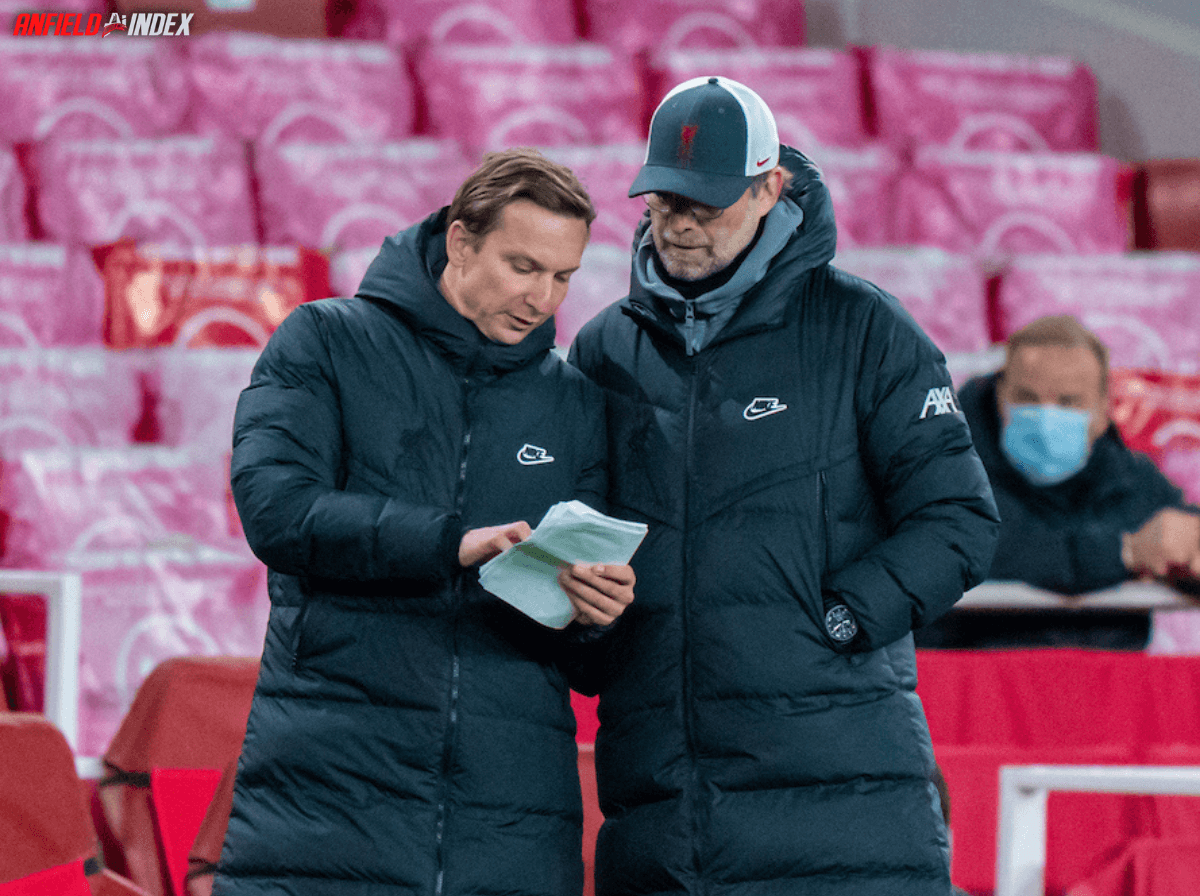Klopp’s Tactical Masterstroke Secures Win at Wolves
Liverpool’s First Half Struggles
In the initial 45 minutes of their Premier League clash with Wolves, Liverpool appeared off the pace. Hwang Hee-chan’s early strike, coupled with Matheus Cunha’s missed opportunity, could have seen the Reds trailing by more than just a single goal. Wolves, with Pedro Neto leading the charge, frequently exploited Liverpool’s vulnerabilities on the counter.
Liverpool’s offensive efforts were equally uninspiring. Their first shot on target came just before the half-time whistle, with both Mohamed Salah and Dominik Szoboszlai thwarted in a frenzied goalmouth scramble. It was a performance reminiscent of their early-season struggles.
Klopp’s Half-Time Adjustments
Jürgen Klopp recognised the need for change. Alexis Mac Allister, the summer acquisition, was replaced after a series of missteps. In came Luis Díaz, with Klopp aiming to ‘change the system around’, as reported by TNT Sports.
Despite signing four midfielders during the transfer window, Liverpool’s tactical approach had remained consistent. Trent Alexander-Arnold’s dynamic role, transitioning from right-back to midfield, was a staple. However, Klopp’s new formation, a 4-2-3-1, saw Szoboszlai in a deeper role, with Curtis Jones offering support.
The impact was immediate. Cody Gakpo levelled the score shortly after the break. Yet, Klopp’s tinkering didn’t stop there. Both Gakpo and Diogo Jota made way for Darwin Núñez and Harvey Elliott.
Núñez’s presence was felt immediately. He consistently troubled the Wolves defence, linking up effectively with Díaz. His involvement in the build-up to the third goal, where he held off Craig Dawson, showcased his striker instincts. Elliott, benefiting from a deflection and the woodwork, sealed the deal for Liverpool.
The Tactical Shift: Klopp’s Genius
While individual performances were noteworthy, the real narrative centred around Liverpool’s tactical evolution. Klopp’s decision to replace a defensive midfielder with an attacking one was audacious, but it paid dividends. The high press of a more attack-minded Liverpool stifled Wolves.
Klopp’s initial strategy may have missed the mark, but his adaptability ensured Liverpool left with all three points. His tactical changes have already salvaged six points this season. Against Newcastle, despite being a man down and a goal behind, Klopp’s decision to introduce Elliott added a new dimension to Liverpool’s attack.
Klopp’s in-game management, once a point of contention, has emerged as a significant asset this season. The overarching question was whether Liverpool, especially the new recruits, could regain their form. But the real focus should be on Klopp’s ability to adapt and innovate. Early indications suggest he’s more than up to the task.



